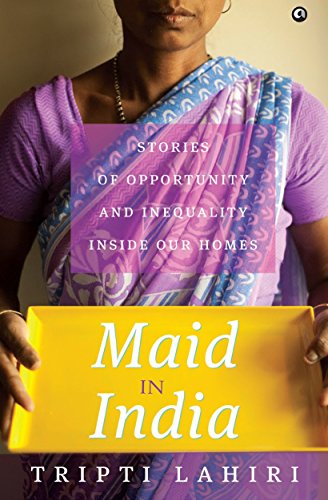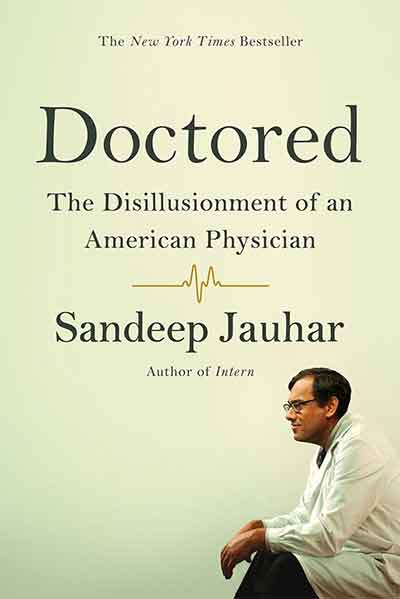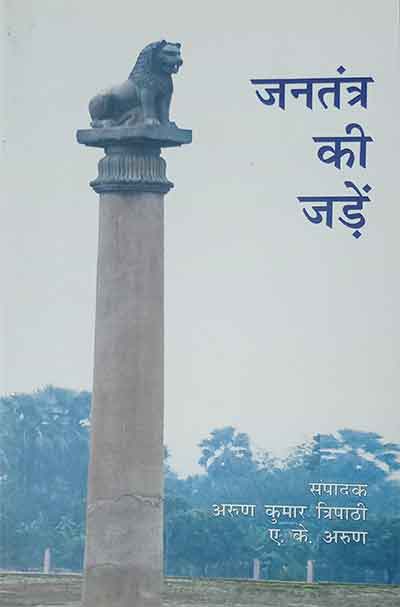
Tripta Lahiri’s book “ Maid in India” on what it means to be a domestic help in an average middle or upper class Indian households is a surprisingly accurate one. It does not paint a binary black and white picture – maids good and noble and employers all evil and cruel. It presents a balanced picture of the benevolent and the malevolent. My own experience with live in maids is limited but reading the book made me visit the experience and my own treatment of them. We had one for a few years when my mother in her final years was quasi bed ridden and needed 24/7 care. But my grandparents always had one in their Kolkata home. In their glory days, it seems they had more than one. Each one then catered to varying needs of a large joint family.
Apart from the live in help who lived in the servants quarters, there were others who came and went. The washerman, the toilet cleaner, the barber are some examples. By the tine I was born, the fortune as well as the size of the family had shrunk. But there was always one live in maid who by now did all or most of the tasks on her own. The much smaller size of the family permitted this. The servants quarters had disappeared by then. She was allotted one of the now many empty rooms in the house. The maid was treated reasonably well from whatever I observed. I don’t exactly know what she was paid and whether that was as per “ market” rates or the minimum wage prescribed. But I do know that she was given spending money for her day to day expenses. This apart, a bank account was opened in her name and her wages deposited there with her consent. She would withdraw and take them with her during her periodic visits to her village , some where on the fringes of the Sunderbans.
All these charitable acts were good and desirable and it is not unlikely that in my circle of the Bengali bhadralok that many others did this too. What I came to realise in the course of reading this book was that I or my family did not make any effort at all to know the back stories of these women who lived with the family and served us for years. Where there villages were, what did their husbands did, how many children did they have and what they did ; nome of that. In particular, I remember one particular help named Kamla who developed breast cancer. She served as long as she could getting herself treated by a homeopathic doctor. She could not afford conventional treatment.
My own extended family’s finances had by then begun dwindling and so there was no question of the family paying for her treatment . They did what they could in terms of providing her extended periods of leave as her condition slowly deteriorated. When completely unable to work, she returned home to her village. Eventually the news came of her death through the circuitous route of another woman from the same village who worked in the neighbourhood . But by then Kamala was already history and her place in the family was taken by another helper. In rural Bengal , there were no shortage of women willing and available to work, particularly in a small family like what mine had become by then. The chores would be limited and board and lodge was assured.
Fast forward a few years and the scene shifts to Delhi where my mother’s health began deteriorating after a fall. It became quickly apparent that my wife and I would not be able to provide the care she needed on our own and we needed full time help. We had no experience and did not know where to look. Through friends and acquaintances , we engaged the first few but the experience was not helpful. Either they had no skills at all in looking after the elderly or they found the task exhausting though they were not given other tasks except look after my mother. When they would leave, there would be a scramble to find another one as quickly as possible. These were literally strangers in the night ; we had barely got to know their names and they were gone.
Eventually we were guided to a placement agency, one of the many that Tripta Lahiri mentions in her book. We were not comfortable initially given the bad name many placement agencies and the association with the trafficking syndicates. But we found one agency, not too unlike The Maid Company that Lahiri has extensively cited as a good and ethical company. Our placement agency did not source anyone from Jharkhand, Odisha, West Bengal , the notorious “source states” for exporting manpower. Most of their girls were from the Delhi NCR area and were trained in health care at hospitals. They as well as their families had economic challenges but aspirational and because they stayed for months at a time, we got to know a bit about their lives and stories.
Our relatively small home would not allow for observances of class and caste distinctions even if we wished to. The helper slept in a spare cot in my mother’s room and ate the same food that was cooked for the family(unless they were vegetarians) and ate from the same common set of cutlery. In all our dealings with the many maids who passed our way, we tried to avoid any over or covert distinction in the manner in which we treated them. Through our work in the development sector we were aware of the issues involved or at least some of them. But did we succeed ?
There is no easy way to answer to answer the question. Only the maids perhaps would have been able to answer that question. But they are no longer part of our life. But in my own experience, people are often blind to matters like child labour, caste based occupations and even domestic violence because they are seen as so much a part of daily life that they have become normalised. Even among activists , one can be super sensitive to the cause one is wedded to but totally blind to other issues in society. Considering that India is a feudal and patriarchal society , just how effectively is it possible for one to completely immunise themselves from being at lest partially infected ? After all there have been researchers who have pointed out caste and gender inequities in the communist parties. Although ideologically wedded to egalitarianism the politburos and other higher bodies display the same biases that one might expect any where else. Clearly blind spots are hard to spot and even harder to remove for all.
Dr Shantanu Dutta , a former Air Force doctor is now serving in the NGO sector for the last few decades.















































